This article will focus on how she builds trust bridges in a rapidly changing industry and unlocks CoinW's unique community-first strategy and entrepreneurial culture.
Written by: Deep Tide TechFlow
Introduction
In 2025, more and more exchanges are beginning to expand their influence in different regions. As one of the oldest and fastest-growing exchanges in the industry, we are fortunate to interview Monika Mlodzianowska, the Director of Strategic Partnerships at CoinW. She shares her unique experiences and insights in the blockchain field.
Monika previously worked at ChainUp and ChainxGame, accumulating rich experience in blockchain infrastructure and the GameFi sector.
She firmly believes that truly successful partnerships must be built on mutual value, open communication, and a shared vision. This article will focus on how she builds trust bridges in a rapidly changing industry and unlocks CoinW's unique community-first strategy and entrepreneurial culture.
Welcome to read this interview to learn how Monika establishes meaningful connections in a fast-changing market and CoinW's growth story in different regions.
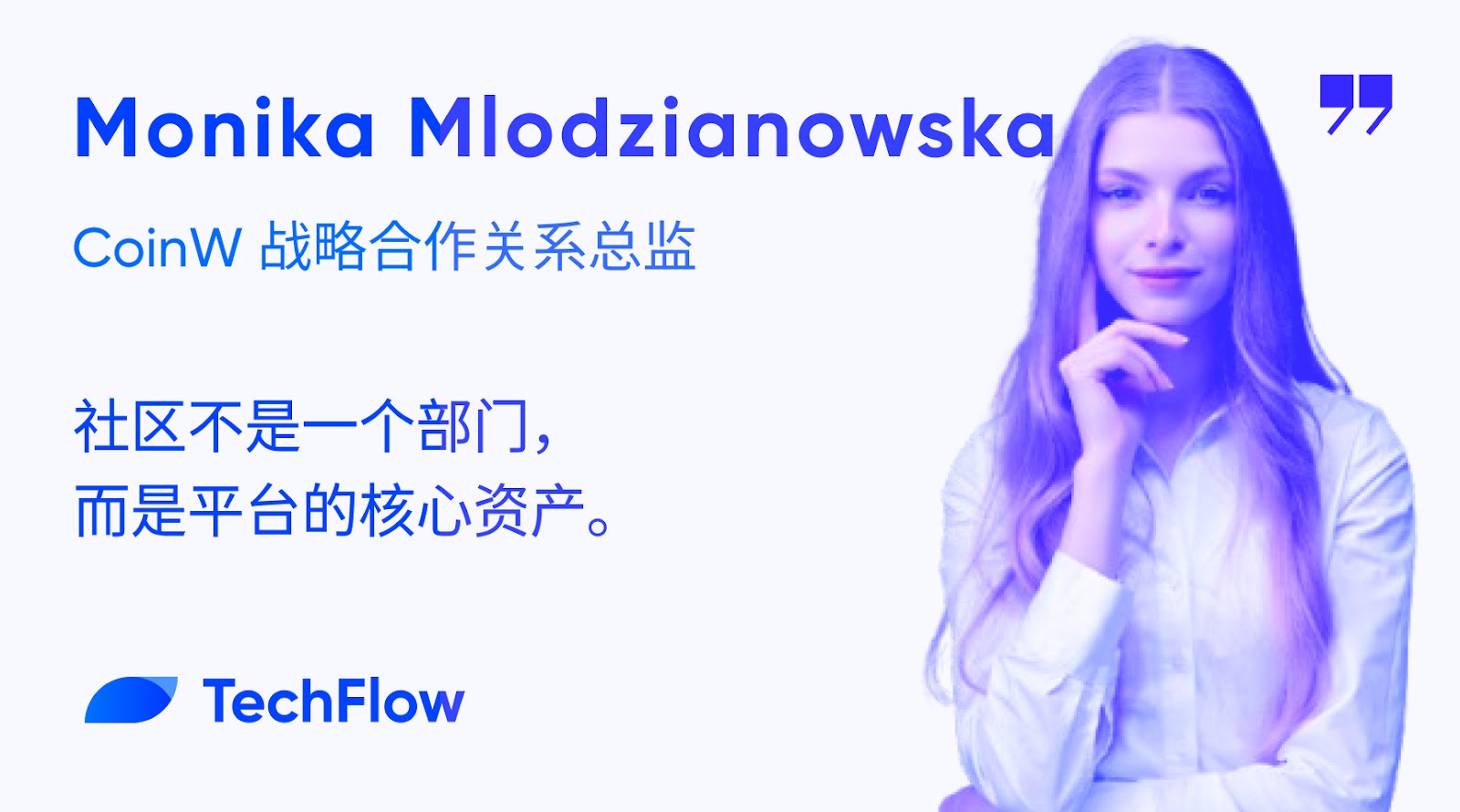
Part 1|Challenging Yourself in New Fields, Focusing on Building Long-term Partnerships
1. Please introduce yourself briefly, Monika. Can you talk about your professional background and what prompted you to join CoinW?
My journey in the crypto space began in Dubai, where I worked at ChainUp and ChainxGame, focusing on blockchain infrastructure and the application of gaming scenarios. My academic background is in business and marketing, which has helped me systematically understand how to build relationships and drive growth.
I have always been passionate about communicating with people from different cultures and enjoy continuously challenging myself in emerging fields. What attracted me to blockchain and Web3 is its immense potential for innovation and the opportunity to help shape a more inclusive financial future.
This is not just a career choice; it feels more like an exploration of future lifestyles. It allows me not to be confined to the status quo or limit myself to a specific location, industry, etc. Joining CoinW felt like a natural next step. Here, I can combine my passion for building meaningful collaborations with the vision of accelerating global Web3 adoption.
At industry events like Token 2049 in Dubai, I have had the privilege of engaging with many influencers and outstanding peers. We discussed the evolving narratives in decentralized communication and the importance of building trust within communities. These experiences continue to inspire and drive my work in partnerships.
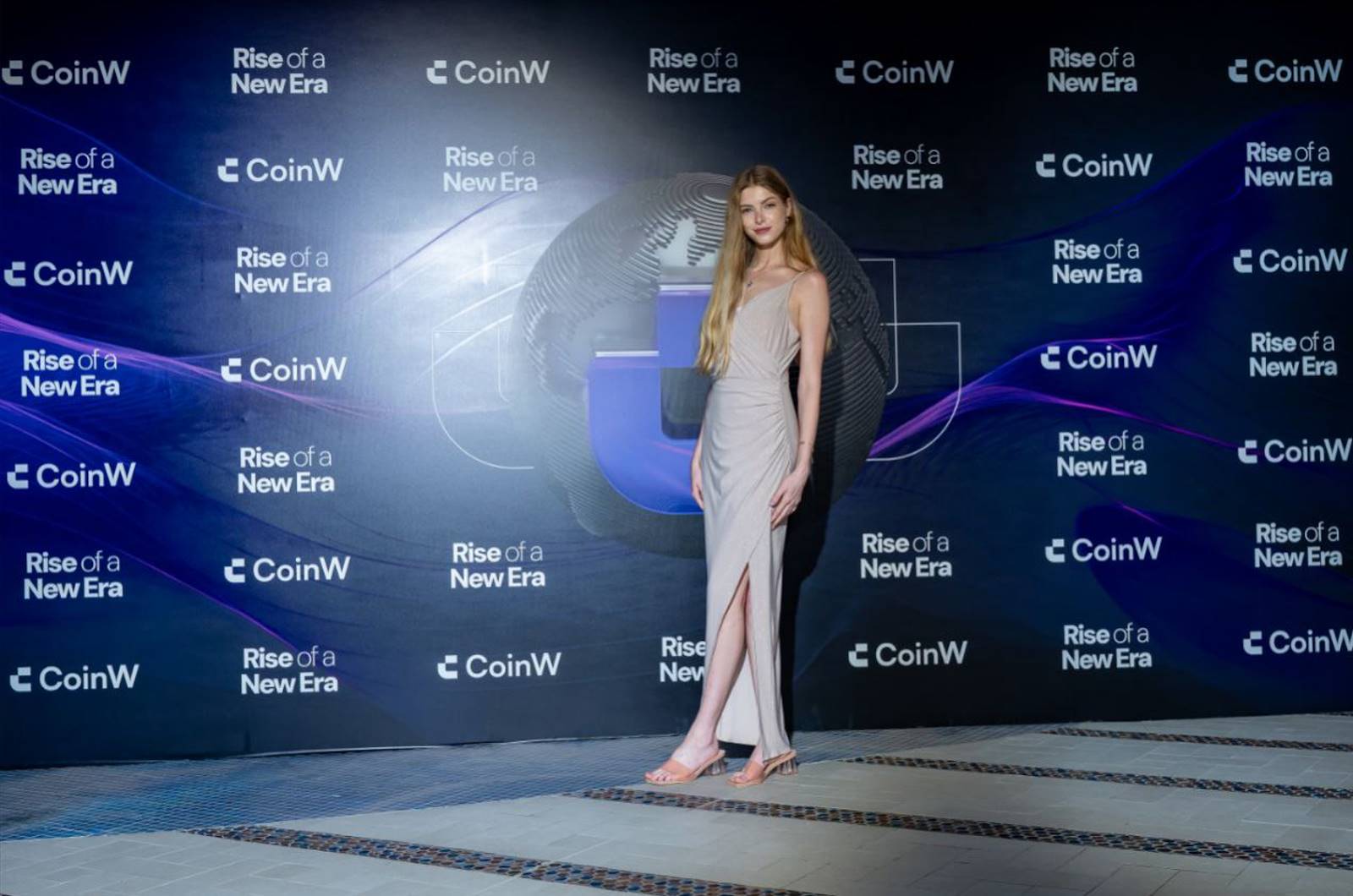
2. Your current position is the "Director of Strategic Partnerships" at CoinW, which sounds like a macro role. Can you share what your daily work looks like? For example, who do you interact with most often? What are your usual KPIs? In your opinion, what kind of partnerships are successful and worth building long-term?
My work pace is very fast, and my core responsibility is to discover and establish partnerships that can support CoinW's long-term development and ecological vision.
The partners I interact with include project teams, KOLs, crypto funds, and compliant investors. We not only value the quantity and quality of partnerships but also care about whether these collaborations truly bring value to the community.
Sometimes, I also participate in reviewing and negotiating partnership proposals, which requires close collaboration with teams in marketing, legal, product, and more.
Participating in industry events is usually my comfort zone; it’s an opportunity to connect with outstanding individuals, learn, and share ideas, which is my favorite part of the job.
However, sometimes I struggle with my doubts and insecurities in such settings. Courage and uncertainty intertwine, but I face challenges bravely, which helps me overcome difficulties and become stronger.
For me, successful partnerships boil down to three elements: mutual value, open communication, and a shared vision. I hope the relationships with our partners are long-term, which also helps CoinW and the broader Web3 community establish sustainable relationships.
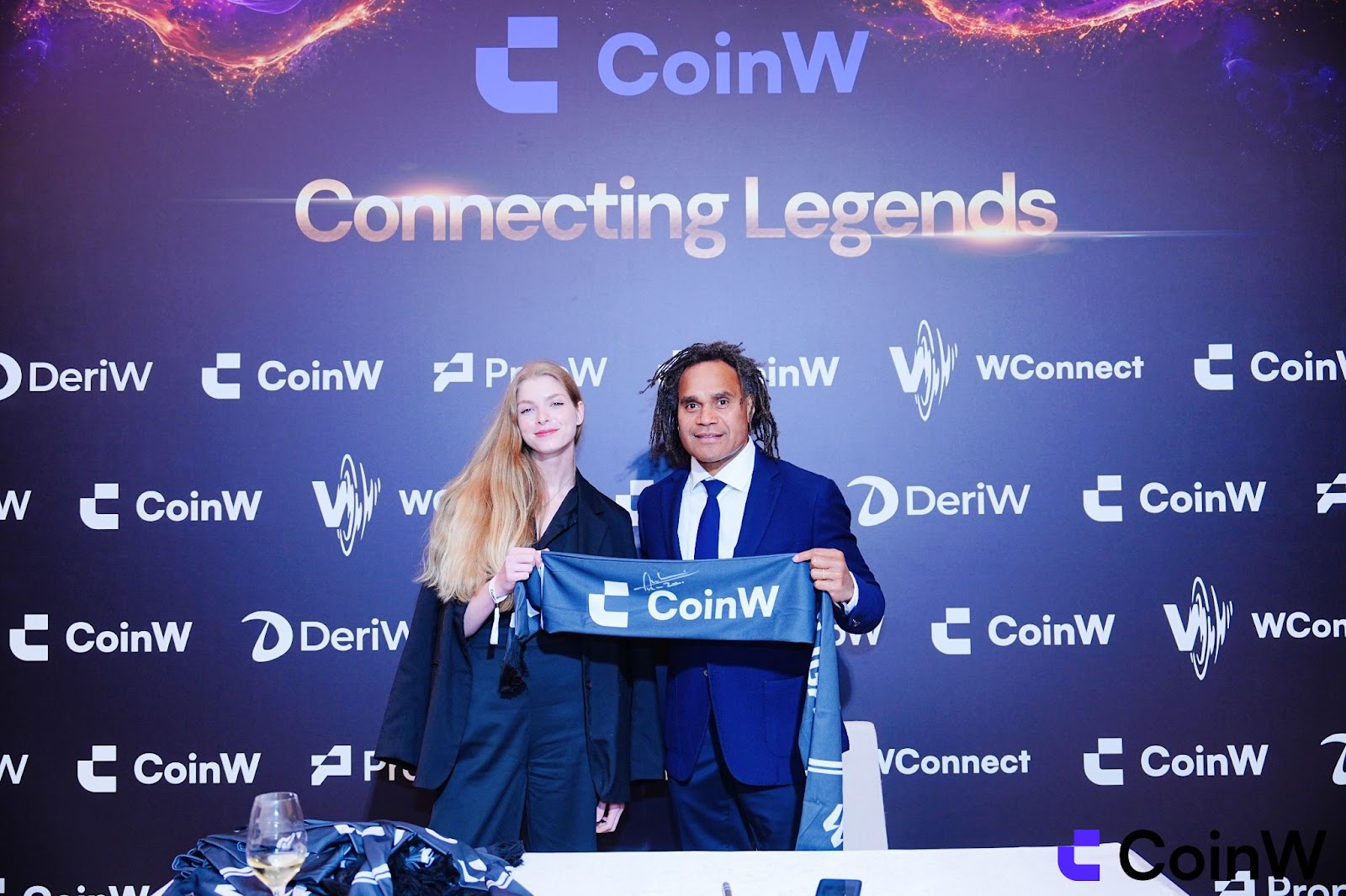
3. We know that many exchanges appoint Chinese-speaking executives as a bridge to communicate with the Chinese market, while you, as a non-native speaker, are still active in front of Chinese users, which is quite special. What do you think are the advantages and challenges of this approach?
You are absolutely right. Many exchanges rely on native Chinese staff when interacting with the Chinese community. As an "outsider" entering this context, it is both a challenge and a unique advantage.
The subtle differences in language and culture are particularly crucial, and building trust takes time and continuous investment. I have spent a lot of time on platforms like WeChat and Weibo to understand users' communication styles, observing the "rhythms" and details in community interactions, such as expressions and popular phrases—everything from "卧龙凤雏" to "地板价" fascinates me!
At the same time, my identity as an outsider brings significant advantages. I often ask different questions and discover gaps or opportunities that others might overlook. My perspective can bring a fresh global viewpoint to local conversations. This external perspective helps to combine global initiatives with the expectations of the Chinese market in a more inclusive and open manner.
Moreover, being a non-native speaker has helped me develop a deeper sense of empathy. This applies not only to Chinese users but also to various different communities. In Web3, global collaboration is crucial, and this mindset is a true advantage.
I firmly believe: "Sincerity and effort often resonate more than language itself. Users can feel whether you are genuinely listening and understanding them; this connection transcends language."
Part 2|Entrepreneurial Culture and Community-First Approach Make CoinW Stand Out
4. In your opinion, what is the most essential difference between CoinW and other mainstream exchanges? Is it the mechanism design? The operational strategy? Or the community mentioned earlier?
The core difference of CoinW lies in : flexible execution + depth of localization + community-first culture.
In every event and community-building effort, we invest tremendous effort. Our product design, community strategy, and team culture revolve around a common mission: to serve users with integrity. We care about our users.
One key difference I have witnessed is our community-first mindset. At CoinW, the community is not just a department—it is embedded in our DNA. From grassroots ambassador programs to local events, regional teams are empowered to create and lead initiatives, rather than merely executing top-down directives. This autonomy builds genuine trust and engagement at the user level.
We also take pride in our flexibility and responsiveness. As a mature platform, we still maintain enough agility to act quickly without compromising quality or compliance. When I collaborate with some projects, they are often surprised by our speed from initial discussions to launching integrations or events. This is rare in this field.
Our internal culture is another highlight. CoinW fosters a collaborative, non-hierarchical environment. Creativity can come from anywhere, and leadership at all levels is encouraged. The people here are driven by a passion for building meaningful things, not just chasing metrics.
For example, during market downturns, while other platforms choose to scale back, we choose to double down on community investment—hosting educational events and enhancing user communication. It is this focus on people that truly shapes CoinW's differentiated value.
A real example is during the recent market downturn. Many platforms reduced community engagement, while we doubled our efforts. We held educational meetings and increased transparency. Our platform facilitated direct communication between users and product teams. This approach not only maintained trust but also strengthened it.
Products and features are important. But what truly sets CoinW apart is our human-centered approach and our consistently localized global strategy.
5. CoinW has experienced rapid growth in recent years, and you have been part of it. Why do you think CoinW has grown so quickly? In your eyes, what is CoinW's core competitiveness?
I joined CoinW in early 2024 and have witnessed incredible growth since then. Initially a centralized crypto exchange, CoinW has evolved into a company with a diversified ecosystem and innovative platform. Last year, our group launched DeriW (on-chain trading), PropW (licensed proprietary trading), and WConnect (an online forum series).
Being part of this rapid expansion has been exciting. CoinW has transformed from an obscure exchange into a player in the global market, establishing a strong foothold in Asia, the Middle East, and Europe.
Entering a competitive regulatory market means needing to establish local partnerships. We also have to adjust our products and compliance measures to meet the needs of each region.
What makes CoinW unique is our entrepreneurial culture. We encourage employees to have a sense of ownership, flexibility, and innovation while maintaining a strong commitment to compliance and user safety.
By investing in regional teams and communities, we balance our ambition for global expansion with adaptability to different regions. It is this combination of "daring to explore + being able to land" that makes CoinW unique and makes my role very valuable.
I remember when we held our first offline event in Europe, the enthusiastic response from local users deeply moved me—at that moment, I knew what we were doing was valuable.
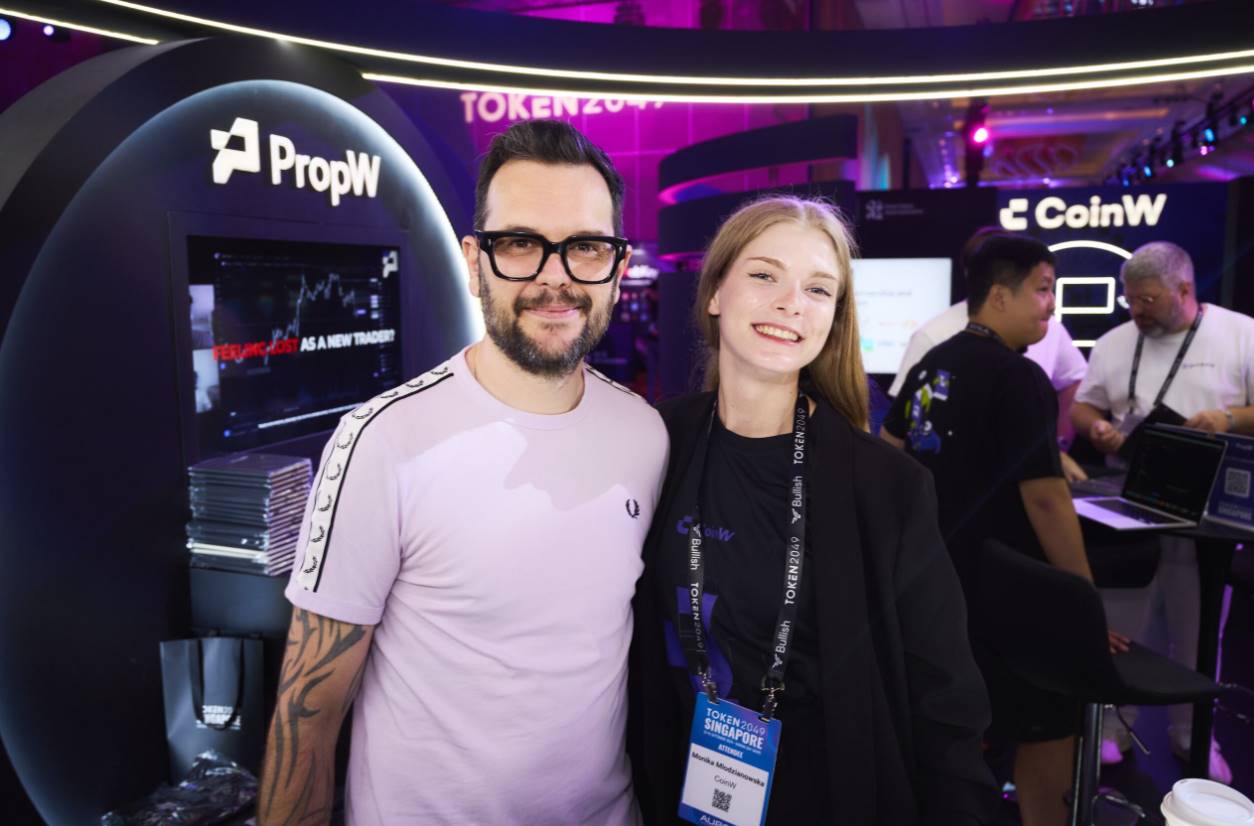
6. Since community building has always been a key component of CoinW's global strategy, how do you view establishing closer connections with users in different regions? When facing users from different language and cultural backgrounds, how do you usually formulate your communication strategy?
We always believe that the community is not a department but the core asset of the platform. I believe that an actively engaged, respected, and empowered community is a hallmark of a great Web3 platform.
Users from different regions—whether in Southeast Asia, the Middle East and North Africa, Latin America, or Europe—not only want translated content; they want relevant conversations and genuine interactions.
Therefore, we adhere to three principles in global community building:
Listening first: Understanding the real needs of the market through local ambassadors and community managers;
Empowering Local Leadership: Supporting regional KOLs to lead content creation and brand activities, rather than a one-size-fits-all headquarters strategy;
Emphasizing Long-term Cooperation and Authentic Expression: We want KOLs to say what they want to say, rather than being forced to "stick to a script."
We also synchronize product rhythms with local cultures, such as incorporating festivals and customs to launch more "localized" interactive formats. Ultimately, we hope community members feel that they are not just users but important members of the ecological community.
Part 3|Differences Across Regions, I Want to Build Genuine Connections and Sincere Interactions
7. In your collaboration with communities in different regions around the world, have you discovered any noteworthy differences or trends? Are there any particularly impressive cases or contrasts?
Content preferences are also highly localized: Chinese communities prefer short content, live broadcasts, and videos; Western users favor long-form articles, podcasts, and X/Twitter threads; users in the Middle East and North Africa value storytelling and demonstrating real-world impact; communities in Africa and South Asia often exhibit high loyalty once trust is established.
One surprising point for me is that English is not the "universal language" of the crypto world. The most successful activities are often thoroughly localized, not just translated. Cultural sensitivity differences are significant, and a poorly chosen word can lead to disconnection.
In my view, regardless of the region, users value transparency, respect, and consistency. Whether you are genuinely listening, truly understanding their needs, and willing to adapt to their culture—these are the keys to earning users' long-term trust.
Collaborating with communities of different languages and cultures is the most rewarding part of my work. Each region has unique values and communication styles, and understanding these differences is crucial for building trust. I have gradually learned to "switch channels"—not just switching languages, but adjusting styles between different communities to establish genuine trust and interaction.
In Asia, especially in Chinese-speaking and Southeast Asian regions, communication tends to emphasize politeness and formality, which is particularly evident when interacting with institutions or authorities. In contrast, users in Latin America and some European countries prefer direct, casual, and even humorous interactions. The same expression may seem professional in one market but could be perceived as cold in another.
Content preferences are also highly localized:
Chinese communities prefer short content. They enjoy live broadcasts and video content on platforms like WeChat, Xiaohongshu, and Bilibili;
Western users tend to favor long-form thought leadership content. They enjoy newsletters, podcasts, and Twitter/X themes;
In the Middle East and North Africa, storytelling and demonstrating real-world value are crucial for building brand trust.
Additionally, some markets prioritize practical interactions, such as AMAs, airdrops, and local meetups. Other markets focus on social proof, asking "Who else supports this project?" or "Is it listed on a reputable exchange?" For example, Korean users conduct thorough due diligence before participating. Meanwhile, communities in Africa and South Asia often show strong loyalty once trust is established.
One surprising point for me is that English is not the "universal language" of the crypto world. The most successful activities are often thoroughly localized, not just translated. Cultural sensitivity differences are significant, and a poorly chosen word can lead to disconnection.
What is the biggest lesson? In all regions, people value transparency, respect, and consistency. When you show up authentically, listen carefully, and thoughtfully adjust, users everywhere will feel valued and remain engaged.
8. Can you share one or two community collaborations or global promotion cases you personally participated in? Why do you think these collaborations were successful?
I have been involved in many exciting community collaboration projects, but the most impressive and representative one was the recent collaboration between CoinW and Superteam Europe for the Solana Breakpoint hackathon.
This was a month-long event that spanned France, Germany, Poland, and the Balkans, attracting developers from across Europe. CoinW provided professional resources from the exchange, while Superteam Europe contributed its locally rooted community network—the combination was very natural and mutually beneficial.
What truly moved me about this collaboration was not the superficial "globalization," but the grounded "localization." We worked closely with local KOLs and university blockchain clubs to ensure that each event aligned with the culture and needs of the community. During the event, CoinW not only provided a $100,000 reward and free listing opportunities but also offered the winning teams subsequent incubation resources and one-on-one guidance.
We were not just "holding an event" for exposure and then leaving; we aimed to establish a long-term value co-creation mechanism—building bridges between developers, project teams, exchanges, and the ecosystem.
In my view, success boils down to several factors:
Truly understanding the local users' rhythms and contexts, rather than forcibly applying a global template;
Both teams invested passion, trusted each other, and achieved mutual success;
Having a clear and authentic shared narrative: we are not here for exposure, but to drive innovation.
This is a process of moving from "cooperation" to "co-creation," reflecting CoinW's consistent values: connecting real people and empowering real ecosystems.
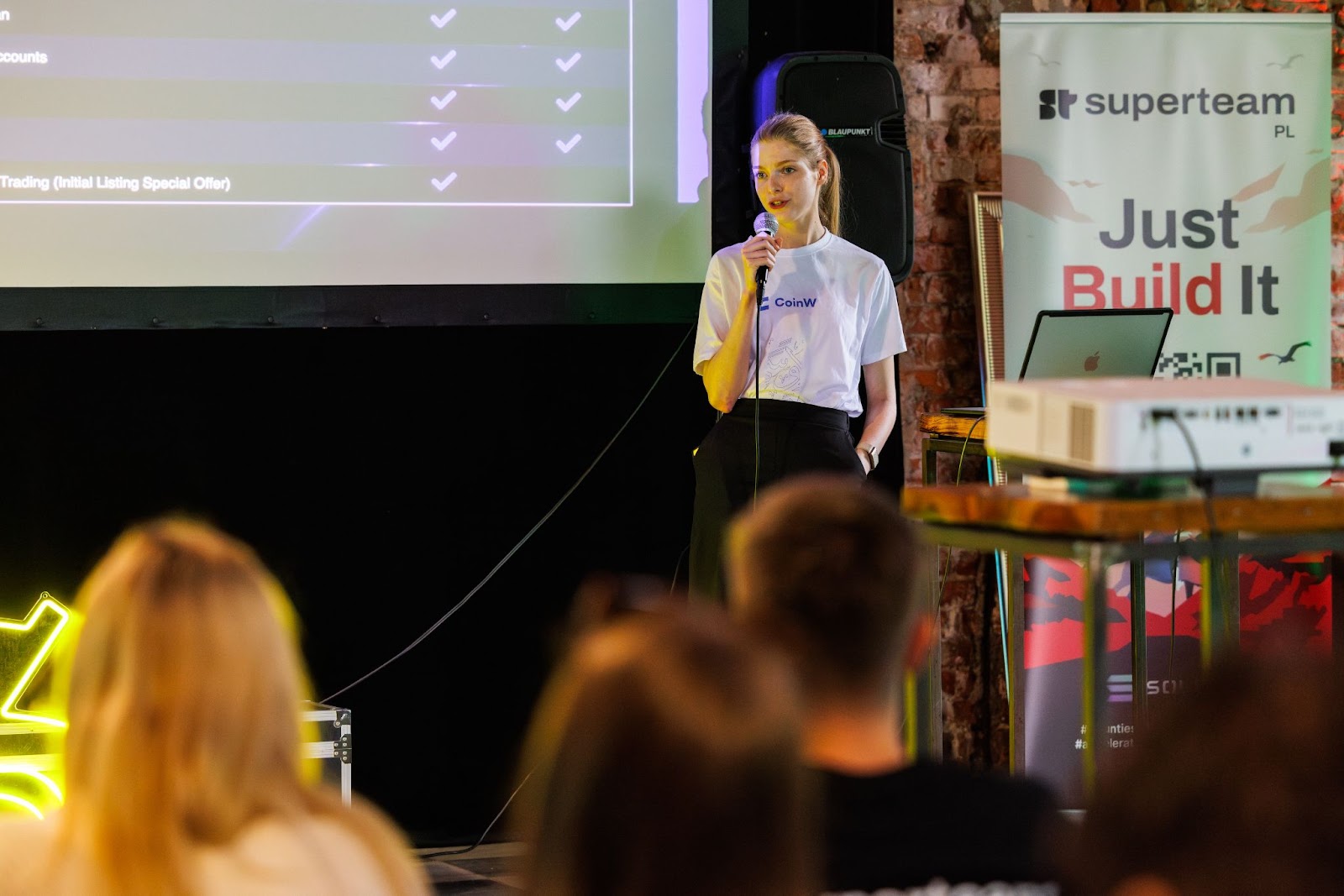
9. Many users may first encounter CoinW through an event, a Q&A session, or a community interaction. What kind of "first contact" do you think leaves the best impression?
The moment of "first contact" is crucial. It not only affects users' first impressions of the platform but also influences whether they are willing to stay, continue to learn, and even identify with our culture and values.
In my view, the most touching "first contact" is never an advertisement, poster, or cold push notification, but a sincere, human interaction—where you are willing to listen to me and engage in dialogue. I can feel that you are not "selling the platform," but genuinely care about the users.
For example, open Q&A sessions, AMAs, allow users to ask questions at any time and receive real feedback; or our small local events, where we appear alongside familiar community leaders and KOLs, naturally building trust.
Another very effective approach is what I call "community rituals"—small designs like regularly hosting "Welcome to CoinW" onboarding sessions for new users in regional communities, giving them a sense of belonging right from the start, not just "watching others chat," but feeling "I am welcomed too."
Of course, there are also some light-hearted and fun ways, such as gamified onboarding challenges and quizzes with rewards, which can lower the barriers to participation and help break the stereotype of "exchanges being too aloof."
The best first impression combines interpersonal connection with a bit of fun. When users leave thinking, "This is not just another exchange—these people really care about me," that is when true loyalty begins to take root.
免责声明:本文章仅代表作者个人观点,不代表本平台的立场和观点。本文章仅供信息分享,不构成对任何人的任何投资建议。用户与作者之间的任何争议,与本平台无关。如网页中刊载的文章或图片涉及侵权,请提供相关的权利证明和身份证明发送邮件到support@aicoin.com,本平台相关工作人员将会进行核查。



